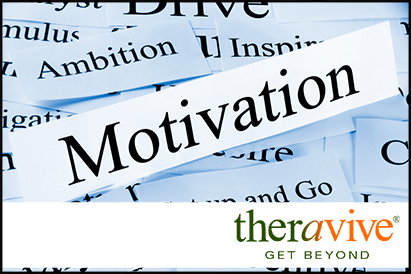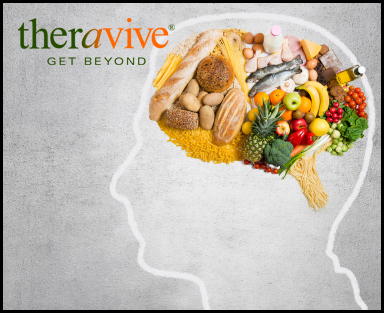April 28, 2014
by Christie Hunter

According to Worthington et al. (1999), unforgiveness can be defined psychologically as the emotional imbalance due to delayed response towards a transgressor. However, the expression (anger, hatred, frustration or violence) depends on the mental state of a person. Worthington and Scherer (2004) in the research study concluded that as unforgiveness is a type of stress response, it has a direct impact on the mental health and psychology of a person. The study also suggests that unforgiveness can be viewed as a state which a person is confined in a stressful state of mind.
[More]
March 30, 2014
by Christie Hunter

For many people, social environment can make or break a diet. Food is a very social concept. The choices we make are often impacted by those around us: what they’re eating, how much they’re eating, and how they respond to our choices can positively or negatively impact our weight and health. Food-Pushers are people who, for whatever reason, offer or “force” foods or portions that are not aligned with your needs and preferences.
[More]
March 29, 2014
by Christie Hunter

Once you’ve resolved to lose weight, that final number can become a fixation-why is that needle not moving?! Some people can become so discouraged by slow progress that they give up entirely, reverting to old habits. Reforming old habits is hard, and the process can be very trying if your expectations for progress are unrealistic. To avoid emotionally sabotaging yourself, consider asking yourself the following questions.
[More]
March 23, 2014
by Christie Hunter

Despite the fact that children spend a large portion of their time at school and other activities, their foremost role models for food, health, and weight will always be their parents.Children mirror parental behaviors. The quality of those behaviors is more important than ever in light of the current Obesity crisis. Although many factors have contributed to the increase in American Obesity, the foremost important behaviors in the provision of a healthy food environment are to A) Eat at home, and B) Eat in Moderation.
[More]
February 8, 2014
by LuAnn Pierce, LCSW

In the past few years mental health practitioners have become more aware of the connection between food, exercise and mental health. Research in these areas supports what some have known for years – we can manage and eliminate some of the more common mental health symptoms by changing what we eat and moving our bodies more.
[More]
August 23, 2013
by Cindy Marie Hosszu

Why Do I feel so tired?
It is finally Friday! We are energized and eager to get that inbox emptied just in time for the weekend. Until that three o’clock crash hits us like a heat wave in the desert. Why is it that most people get so sleepy between two and four o’clock each day? We eat right, we love our jobs, and we want to be attentive and aware until that clock strikes five, but it happens anyway. It is hard to think, hard to stay focused, and hard to even keep our eyes open.
It has to do with our biological clock, or circadian cycle. The cycle dictates how alert we are during a twenty-four hour cycle. There are two times during that twenty-four hour cycle when our alertness will drop. Aside from some degree of difference due to life getting us off track, most of us will have these drops between two and four in the morning and again twelve hours later, which is our three o’clock slump. [1] What happens during these times is that the amount of natural light decreases, our body temperature decreases, we have a rise in a hormone that causes sleep called melatonin, and oxygen circulation in our body decreases. Our bodies really do want us to nap. Unfortunately, most of us who work need our job to survive, and most companies frown on crawling under the desk for a siesta.
While we can’t change nature, or the fact that our culture exists due to those of us working during this time to keep it running, we can do a few things to help make it through this mental dip in our day.
Get Your Sleep
If you can take a 20 minute nap, it can improve your focus, but the way to combat the afternoon crash is to get plenty of sleep each night. The afternoon slump is not as intense if you have had a good night’s sleep. In the summer, it is difficult to get the amount of sleep we need because the sun is up, and we have so many fun things to do, but our bodies take cues from the sun. Don’t let yourself stay up late because you have things to get done after the sun goes down. Sleep with the curtain open so that the sun wakes you, and then let yourself wind down in the evenings as the sun goes down. Avoid doing stimulating things, such as watching TV or being on the computer at night. Reading is a good way to wind down, and get your mind ready for sleep.
Friday Afternoon Dance Party
Combine the three things that stimulate your mind and body the most. Music helps to improve mood, and focus, movement helps alleviate your body temperature and increase adrenalin and oxygen circulation to the brain. If dancing around the office is too much for your company, a few stretches, getting up and walking around, or putting on the headphones, and having your own dance party are all adequate substitutes. I have found that having a standing desk has reduced my afternoon slump tremendously.
Get Some Rays
Take advantage of the natural light that helps regulate our circadian cycle by getting out in the sun for a few minutes. Going for a walk would combine that light with the movement that helps to wake us up.
Plan Group Activities
If you can, plan any group activities for that time when we are all getting drowsy. One of the things that enhance that sleepy feeling is boredom. [2] If you have activities that involve stimulating conversations or interesting ideas, plan them in the afternoon, when you will need that stimulation the most. On the other hand, if you know a meeting is going to be monotonous, plan it away from the afternoon mental crash.
The afternoon slump can be much worse on Friday when we are so close to the weekend, and wrapping up the week’s loose ends, but there is hope for those of us who suffer from the mind numbing body clock blues. It just takes knowing how your body works, getting plenty of sleep, light, and movement to keep us as energized and eager from morning until that clock strikes five.
Getting Help
The inability to concentrate at work could be more that just the time of day. If you are finding it generally hard to get up in the morning or maybe even hard to actually turn your mind off and get to sleep at night you may benefit from discussing things with a counselor. Many people are going through stressful events, or even work itself is stressful. The ability to talk-it-out and feel supported can help to bring back joy into the day and allow for more cohesiveness work environment.
[1] "How Your Body Clock Affects Sleep—And How to Reset It." Helpguide.org. Collaboration with Harvard Medical Publications, n.d. Web. 21 July 2013.
[2] “Boredom effects on sleepiness/alertness in the early afternoon vs. early evening and interactions with warm ambient temperature.” Mavjee, V., Home, J.A. British Journal of Psychology, (1994). 85(3), 317-333.
July 17, 2013
by Ashley Marie

Most of us try to incorporate healthy foods into our meals. Balanced diets help us maintain a healthy weight, fight disease, build muscle, and improve our general well being.
But have you considered the relationship between your diet and your brain?
As part of my series on brainpower, this week I will outline some foods that help enhance your mental capacity.
Brilliant Breakfast
According to Dean et al., you should not skip any meals if you want to eat your way to a brilliant brain.[1]
As someone who would rather sleep in longer than wake up earlier to make breakfast, this is a bit of a challenge. But the good news is that you can make a healthy breakfast that requires very little time and effort.
1 Slice of Whole Grain Toast
Sorgen explains that whole grains promote a healthy blood flow, which is important for the brain.[2] Whole grains help cells reproduce and provide us with the energy we need to think clearly and accurately.[3]
During a stressful week of work or exams, we need to pay special attention to our choice of carbohydrates. Typically, we crave carb-filled foods when we feel stressed. However, we need to digest complex carbohydrates.[4] This is because whole grains are rich in fibre, which help reduce fatigue.
1 Egg
Our minds need healthy sources of protein, especially foods that are low in cholesterol and fat. In fact, high-fat proteins like sausage and bacon can actually make you feel tired.[5] Lean sources of protein, such as chicken, eggs, and low-fat milk, do the exact opposite. They are high in vitamin B12, which helps improve cognitive skills.
1 Cup of Orange Juice
Vitamin C also helps reduce stress, thereby allowing you to think calmly and clearly. This vitamin helps balance the body’s production of cortisol, a chemical that contributes to stress[6]. Too much cortisol can hinder our ability to learn and remember information. So, it is important to digest fruits rich in vitamin C, such as oranges, strawberries, and kiwis.
Clever Caffeine
1 Cup of Tea
You felt energized after breakfast, drove to work on time, and had a fresh start to your day. But now you’re craving just that small boost of energy to get you through the morning.
As explained by Evans, caffeine can help increase your focus.[7] Tea leaves have antioxidant properties, which reduce brain deterioriation. In fact, antioxidants are often used to treat brain injuries.[8] Moreover, coffee grains contain magnesium, which contributes to healthy blood sugar regulation.[9]
So, go ahead and make yourself a hot cup of coffee or tea – just avoid overdoing the cream and sugar.
Logical Lunch
Asian Broccoli with Tofu on Rice Noodles
Tofu is a good source of omega-3 fatty acids, which stimulates your ability to absorb and retain knowledge.[10] Try some tofu with your favourite Asian sauce, and add some broccoli to the mix. Broccoli is rich in iron, which helps your blood supply oxygen to your brain. Diets with high sources of iron help enhance mental reasoning. In fact, iron deficiencies can contribute to learning disabilities and low IQ scores.[11]
As outlined earlier, your brain needs healthy carbohydrates, so opt for rice noodles or whole grain noodles, rather than regular noodles.
Mind Munchies
Dark Chocolate
You powered through a productive day of work, and now you’re ready for a nice break. To satisfy a sweet craving, have a bite of some dark chocolate.
Dark chocolate includes antioxidants and caffeine. Both increase our concentration.
Moreover, chocolate helps our bodies produce endorphins, which make us happier. Speaking from personal experience, my productivity tends to be a lot greater when I am in a good mood. So, some dark chocolate, in moderation, is a good brain food.
Savvy Supper
Chicken Salad with Beets and Walnuts
Beets help nourish your neurons, which stimulate your brain.[12] Furthermore, chicken is a lean source of protein. To finish off your salad, sprinkle on some walnuts. Recent studies have shown that eating walnuts helps your memory skills. They are also an excellent source of omega-3 fatty acids.
Bon Appetit!
Eating healthy takes some forethought, but it is a smart way to boost your brainpower. The next time you go grocery shopping, remember that a balanced diet not only helps you maintain a healthy weight and fight disease – it also helps you become sharper and more focused. Cheers to a smarter you!
[1] Dean, C., V. Dmitriev, and D. Raskin. 2009. 365 Ways to Boost Your Brain Power: Tips, Exercise, Advice. F&W Media Company.
[2] Sorgen, C. 2013/ Eat Smart for a Healthier Brain. Web MD. [online] <http://www.webmd.com/diet/features/eat-smart-healthier-brain>
[3] Dean, C., V. Dmitriev, and D. Raskin. 2009. 365 Ways to Boost Your Brain Power: Tips, Exercise, Advice. F&W Media Company.
[4] Toffelmire, A.. 2013. How To Take a Bite Out Of Stress. C-Health. [online] <http://chealth.canoe.ca/channel_section_details.asp?text_id=5046&channel_id=11&relation_id=27878>
[5] Evans, L. 2013. Sharpen Your Memory with Brain-Healthy Foods. Entrepreneur. [online] <http://www.entrepreneur.com/article/226179>
[6] Toffelmire, A.. 2013. How To Take a Bite Out Of Stress. C-Health. [online] <http://chealth.canoe.ca/channel_section_details.asp?text_id=5046&channel_id=11&relation_id=27878>
[7] Evans, L. 2013. Sharpen Your Memory with Brain-Healthy Foods. Entrepreneur. [online] <http://www.entrepreneur.com/article/226179>
[8] Reiter, R.J. 1995. Oxidative processes and antioxidative defense mechanisms in the aging brain. The FASEB Journal. [online] <http://www.fasebj.org/content/9/7/526.full.pdf>
[9] Beck, L. 2012. Which is healthier: tea or coffee? The Globe and Mail. [online] <http://www.theglobeandmail.com/life/health-and-fitness/ask-a-health-expert/which-is-healthier-tea-or-coffee/article546635/>
[10] 2013. Fish oil ‘can restore the brain after junk food.’ Mail Online. [online] <http://www.dailymail.co.uk/health/article-2325293/Fish-oil-restore-brain-junk-food-Diets-rich-omega-3s-play-key-role-reversing-damage-caused-high-fats.html>
[11] Toffelmire, A.. 2013. How To Take a Bite Out Of Stress. C-Health. [online] <http://chealth.canoe.ca/channel_section_details.asp?text_id=5046&channel_id=11&relation_id=27878>
[12] Evans, L. 2013. Sharpen Your Memory with Brain-Healthy Foods. Entrepreneur. [online] <http://www.entrepreneur.com/article/226179>
National Minority Mental Health Awareness Month
Mental illness is the most common cause of disability, affecting one in four adults, and one in ten children in the United States, but minorities are less likely to receive care. National Minority Mental Health Awareness Month was created to raise awareness about mental illness in diverse communities and promote wellness and recovery.
Statistically
African Americans living below the poverty level are 3 times more likely to report psychological distress compared to those who are over twice the poverty level.
Suicide rates for African Americans between the ages of 10 and 14 increased 233% between 1980 and 1985, while Non-Hispanic Whites increased 120%.
Southeast Asian refugees, who experienced trauma due to immigration, are at risk for Post-Traumatic Stress Disorder (PTSD), but Asian Americans have lower rates of mental health utilization because stigma and shame deter them from treatments.
Suicide was the second leading cause of death for American India/Alaska Natives between the ages of 10 and 34 in 2009.
Adolescent American Indian/Alaska Native females have almost four times the rate of suicide than white adolescent females.
In 2011, Hispanic high school girls attempted suicide 70% more than white girls of the same age. [1]
National Minority Mental Health Awareness Month
National Minority Mental Health Awareness Month is observed throughout the month of July. The United States House of Representatives proclaimed July as Bebe Moore Campbell National Minority Mental Health Awareness Month. The purpose is to recognize the need for improved access to mental health treatment and services, and make people aware of mental illness, especially for minorities that do not get care. [2]
In honor of Bebe Moore Campbell, who was member of the National Network to Eliminate Disparities in Behavioral Health (NNED), the resolution was passed May 21, 2008. Campbell was also a member of the National Alliance for the Mentally Ill (NAMI), and cofounder of the Inglewood, California chapter. [3] Bebe Moore Campbell was best known as a journalist and bestselling author of several novels including “Your Blues Ain’t Like Mine,” a historical novel about Emmitt Till, and the beginnings of the Civil War movement. She wrote children’s books such as “Sometimes My Mommy Gets Angry,” which deals with coping with a mother who is mentally ill. Her novel, “72 Hour Hold,” demonstrates the complexities of living with a family member with bipolar disorder. [4] Bebe Moore Campbell was dedicated to move people to support mental wellness and bring awareness to the hardships of those with mental health disorders.
Addressing the Need
Barriers to mental health care cause minorities to have less availability to mental health care, and they are less likely to use the services that are available. This means that a lot of minorities are also not being included in mental health research. Barriers include:
Stigma In some communities, seeking a mental health care professional can be a problem because the community has stigmatized healthcare providers, and treatments. On the other hand, some have used cultural stigmas to dismiss mental illness.
Language In order to diagnose and treat any mental illness, there must be communication. When there are language barriers, fear of treatment or mistrust can keep a person from receiving the care they need.
Economics The cost keeps many from getting the care they need, but for minorities who are uninsured, or underinsured, mental health care is out of reach, or the care that they do get is of poor quality. Social status and economic disadvantage contribute to the stress and depression that perpetuates mental illness, leaving minorities even more vulnerable.
Cultural Differences Faith, customs, values, and traditions play a big part in person we are, and how we live our lives. Whether a provider of care, or the patient, we have a set of values that we use to base our truths. In the United States, the health care we use is based on Western Medicine. If a person of another culture has views that are opposed to Western Medicine, they are unable to benefit from treatment. [5]
Help spread the word, and encourage people to seek wellness. You can contact the Office of Minority Health to find events going on in your area, or start your own event.
Treatment and recovery are possible for everyone. Anyone who has symptoms or concerns about their mental health should continue to seek help. If you find care that does not work for you, keep seeking until you find quality care that works. You are not alone.
[1] "Mental Health Data/Statistics - The Office of Minority Health - OMH." Office of Minority Health - OMH - Home Page. US Dept. of Health and Human Services Office of Minority Health, n.d. Web. 14 July 2013.
[2] Gimeno, Jessica. "NAMI | History and Highlights: National Minority Mental Health Awareness Month ." NAMI: National Alliance on Mental Illness - Mental Health Support, Education and Advocacy. N.p., n.d. Web. 13 July 2013.
[3] Ibid.
[4] "Bebe Moore Campbell Biography." Encyclopedia of World Biography. N.p., n.d. Web. 13 July 2013.
[5] "Executive Summary Mental Health: Culture, Race, and Ethnicity A Supplement to Mental Health: A Report of the Surgeon General." Department of Mental Health and Addiction Services. U.S. Public Health Service, n.d. Web. 13 July 2013.
The origins of Thanksgiving have nothing to do with a bunch of Indians and pilgrims sitting down for a bountiful feast of turkey. In reality although the settlers with pale faces had been bothering the Indians in addition to giving them many new diseases they had never had were starving by this time. The Indians took pity on them and brought them some corn and fish. Thanksgiving has a lot of emotional disappointment and this article will show you how to deal with this.
This is a period of time in which you are expected to give to others and be generous. Although the intention is good it often leads to self sacrifice and disappointment. This is a period of time in which you must balance your newfound humanitarianism with the demands on your own life. If you do not continue to reach your own immediate goals either at work or at home you will find yourself being irritable and exhausted. Remember that an obligation to give to others does not mean that you have to sacrifice your own needs. You must remember to give yourself some time for your own physical and mental well-being. It is a time when we most often neglect the things we do to make ourselves happy and keep ourselves balanced like exercise, yoga, or other spiritual practices for your own physical and mental well-being This is a time to find some positive solutions to deal with your family members past resentments. Remember that when I family system gets back together it quickly returns to whatever difficulties encountered before. Even if you're the only person in the room aware of this it may help you from dealing with the fallacy that "now that we're all together we must be alright."
This leads to the need to decide on your priorities and organize your time adequately. I this will counteract your feelings that you have not a planned enough for Thanksgiving. If you find additional time you can always volunteer to feed the poor would do random acts of kindness. You may also need to have planned out some unstructured inexpensive holiday activity because this holiday evokes a feeling of being served good food rather than organizing fun things to participate in. Spending some time thinking about this will save the day when you are reunited with your family and no one knows what to do.
One of the major fallacies are that Thanksgiving will take away feelings of loneliness, sadness, fear, anger and frustration. This holiday is heavily advertised is a time in which everyone appreciates being together. The fallacy behind that becomes clear when you are reuniting with family members and you realize why you have become independent of them. You may find yourself being overwhelmed with anger or fear or worse yet feeling alone being surrounded by your family. The worst emotion that creeps up on this holiday is resentment. It is usually triggered by a previous bad relationship with a family member. Beware of grudges and slights you have suffered in the past and keep them from resurfacing.
Thanksgiving is designed to encourage gluttony. This is not an open invitation to eat too much. Remember that most people with eating disorders simply want to have something to control in their lives and to avoid the resentment and self-hatred you will naturally feel after eating way past feeling hungry. This includes other over indulgences. You know by now what you need to keep a careful eye on so that you don't lose control and this may be an opportunity to set an example with other family members who still have raging addictions. You may want to have some contingency plans when they become abusively angry, drunk or chemically impaired.
If it the end of the holiday feast you find yourself still feeling depressed or resentful remember what the Indians did. They didn't like these foreigners who is strange customs and behaviors showed such a resentment towards nature that it disrupted and destroyed the Indian culture. Yet they still took pity on these poor starving people and threw them a fish or two.
February 7, 2012
by Christie Hunter

By Tanya Glover
Theravive.com Contributor
Whether you realize it or not, sleep plays a very large role in our lives. In fact, at least 1/3 of our entire life is spent sleeping! When we are children we hate to do it and as adults we cannot get enough of it, but either way you look at it, sleep is something we must have. You may be surprised to learn what sleep does for our bodies and what the effects of not getting enough it can be.
The Importance of Sleep for Children
Children burn a lot of energy during the daytime hours. Their only real resting period (and yours!) is during slumber. It is recommended that school aged children should get between 10 and 12 hours of sleep each night to get the maximum benefits that sleep provides. But why is it so important to get enough sleep? What does it do?
· When you child is young, their brains are in developmental overload. Sleep helps to restore the brains functions in order for your child to be able to learn each day. It also gives their brains a rest from the flurry of activity it processes throughout the daytime hours.
· When a child does not get enough sleep it can lead to obesity. Sleep helps to keep hormones balanced and when you are not getting enough, these hormones have a harder time balancing out and in turn they do not properly regulate feelings of hunger. This can lead to overeating which is a major childhood issue right now.
· Lack of sleep in childhood has also been associated with ADHD and behavioral problems. When a child’s brain is not well rested they tend to act ways they are not even consciously aware of.
· For a child that stays overly tired, snoring can occur, even at very young ages. When infants snore it can delay their overall development.
· If your child experiences night terrors, you may want to evaluate the amount of sleep they are getting. Night terrors are made worse when a child is deprived of the proper amount of sleep.
· Lack of sleep can cause memory problems. This is because memory consolidation happens when you are asleep. When we do not get enough sleep this consolidation cannot occur and this can lead to short and long term memory loss.
· During the REM period of sleep, your child unlearns certain things. This is very important! Think of it like this. Your child has just learned how to ride a bike. The first 20 times that they tired, they fell off. However, the 21st time they mastered it! When they sleep they dump out the superfluous memories and keep the important learned lessons. This means that when the go to get on their bike they automatically do what they did on the 21st time, having unlearned how to fall off the bike! Sleep deprivation can make it to where these types of things are not unlearned and new skills may begin to slip away, only to have to be relearned all over again.
· Children who get enough sleep tend to perform better in all areas of their lives. Plus, having a child who gets enough sleep also gives you the chance to get the amount of sleep you need! It is a win-win situation!
The Importance of Sleep in Adults
Sleep is not just important for children. As adults, we still need enough sleep to function right and stay healthy. It is recommended that adults get at least 8 hours of sleep per night. Below you will find the top reasons why sleep plays an important part in our lives as well!
Becoming sleep deprived can be very dangerous. It effects hand-eye coordination which is needed to do many tasks each day. Take driving for example. This requires good reaction time and attention span. When someone who has not had enough sleep gets behind the wheel it is as bad as if they are intoxicated. And speaking of intoxication, those who are not getting enough sleep and who drink get affected more quickly by the alcohol which can make for some dangerous situations.
As we get older our memory begins to falter a bit. This is a natural part of aging but it is magnified 100% when you do not sleep enough.
Adults who do not get enough sleep are moodier during the day and have a hard time concentrating at the tasks the need to accomplish. This can lead to damage of relationship and job loss.
Studies have shown that adults who do not get the proper amount of sleep have a lower immune system. This is because the body is not being given enough time to rest and restore itself before being slung back into motion.
Studies have also shown that adults who do not sleep enough are more likely to have irregular heartbeats, high blood pressure and increased levels of stress.
Finally and maybe most importantly, getting enough sleep at night has been tied to helping people avoid cancer or fighting it off if it has already been diagnosed. Of course getting your rest will not cure cancer or stop it if it is going to infect you, but every little thing helps when it comes to this horrible illness so why not at least take it into consideration and get more sleep just in case?
Go to Bed! Why? Because I Said So!
No matter how young or old you are, it is a proven fact that your overall wellbeing and health is effected by how much sleep you get at night. Millions of people suffer from sleep deprivation. Some people do not get enough sleep because of stress in their lives or other things that keep them awake and worrying. For some it is due to insomnia, which is a curable disorder. Others just shirk sleep because they have so much to do (like me for instance!) No matter what the reason, the bottom line is that sleep is essential for keeping us happy and healthy. So, even though it may be difficult to get into the habit of going to bed earlier, it is something that your body will thank you for in a million and one ways! Now it is time for me to get some rest, so good night everyone!